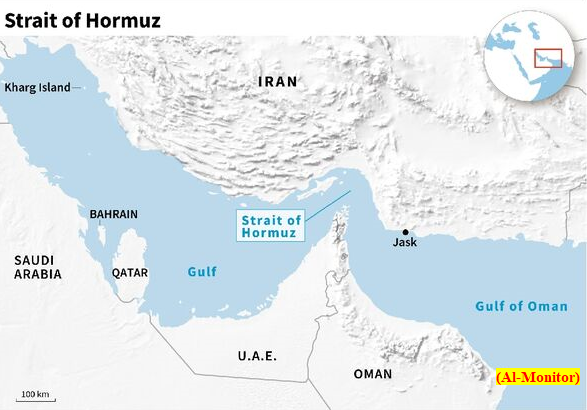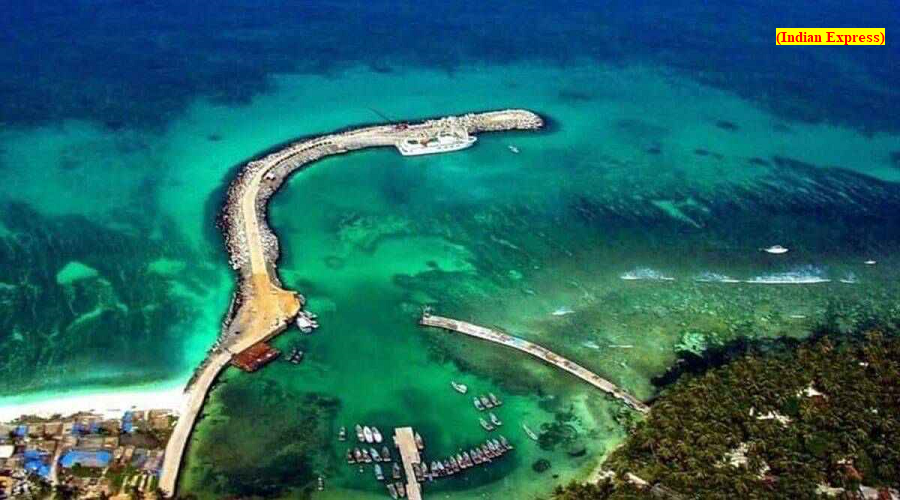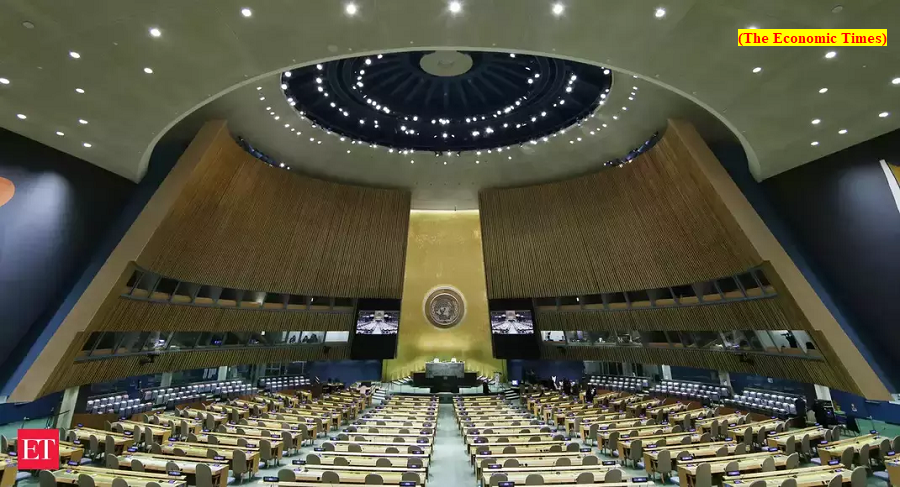Iran to hold military exercises near Strait of Hormuz (GS Paper 3, Defence)

Why in news?
- Recently, Iran’s army began military exercises in strategic southern regions east of the Strait of Hormuz.
- The Strait of Hormuz is the strategic chokepoint at the head of the Gulf through which a fifth of world oil output passes.
Key Highlights:
- Joint drills involving air, land and naval forces will take place around the south-eastern port of Jask “east of the Strait of Hormuz”.
- Exercises will involve “infantry, armoured and mechanised units of the ground forces, defence systems of the air defence force (and) subsurface and surface vessels.
- Naval forces with the support of “strategic bombers of the air force” will also take part.
- The drones will practice “information-gathering operations against attacking forces as well as reconnaissance operations”.
Background:
- Iran’s army unveiled its first division of ships and submarines capable of carrying armed drones in July when US President Joe Biden was touring the Middle East.
- In August, the army launched large-scale drone drills across the country involving 150 unmanned aerial vehicles.
- The United States and Israel, archenemies of Iran, have previously accused Tehran of using drones and missiles to attack US forces and Israel-linked ships in the Gulf.
Strait of Hormuz
- The waterway separates Iran and Oman, linking the Persian Gulf to the Gulf of Oman and the Arabian Sea.
- The Strait is 33 km wide at its narrowest point, but the shipping lane is just three km wide in either direction.
- Most crude exported from Saudi Arabia, Iran, the UAE, Kuwait and Iraq – all members of the Organization of the Petroleum Exporting Countries (OPEC) – is shipped through this waterway.
- It is also the route used for nearly all the liquefied natural gas (LNG) produced by the world’s biggest LNG exporter, Qatar.
Lakshadweep bars entry into 17 uninhabited isles citing security concerns
(GS Paper 3, Internal Security)
Why in news?
- The Lakshadweep administration has prohibited entry into 17 of the total 36 islands citing national security and public safety concerns.

Details:
- The 17 are uninhabited isles of the Union Territory and permission for the entry from the sub-divisional magistrate is required.
- The District Magistrate (DM) of Lakshadweep issued a proclamation under Section 144 of the Criminal Procedure Code (CrPC) in this regard.
Why this step has been taken?
- The decision on the proclamation was taken to prevent terrorist or smuggling activities on the uninhabited islands which have temporary structures as houses of labourers who harvest coconuts.
- There could be people among them involving in illegal, anti-social and anti-national activities, hence the decision.
- It warned violators of punishment under section 188 (disobedience to order duly promulgated by public servant) of the IPC which provides for a jail-term between one and six months or a fine.
About Lakshadweep:
India abstains on UNGA resolution asking ICJ opinion on 'violation' of Palestinian rights
(GS Paper 2, International Organisation)
Why in news?
- India has abstained in the UN General Assembly on a resolution that asked the International Court of Justice for its opinion on the legal consequences of Israel's prolonged occupation and annexation of the Palestinian territory.
- The draft resolution Israeli practices affecting the human rights of the Palestinian people in the Occupied Palestinian Territory, including East Jerusalem was adopted by a recorded vote, with 87 votes in favour, 26 against and 53 abstentions, including by India.

Terms of Resolution:
- The resolution decided to request the ICJ to render an advisory opinion on what are the legal consequences arising from the ongoing violation by Israel of the right of the Palestinian people to self-determination, from its prolonged occupation, settlement and annexation of the Palestinian territory occupied since 1967, including measures aimed at altering the demographic composition, character and status of the Holy City of Jerusalem, and from its adoption of related discriminatory legislation and measures.
- It also asked the ICJ, how do the policies and practices of Israel affect the legal status of the occupation, and what are the legal consequences that arise for all States and the United Nations from this status?
- The US and Israel voted against the resolution while Brazil, Japan, Myanmar and France were among those that abstained.
Israel stand:
- Before the vote, Israel said that the outrageous resolution calling for the advisory opinion of the International Court of Justice is a moral stain on the UN and every country that supports it.
- No international body can decide that the Jewish people are occupiers in their own homeland. Any decision from a judicial body which receives its mandate from the morally bankrupt and politicized UN is completely illegitimate.
About ICJ:
- ICJ was established in 1945 by the United Nations charter and started working in April 1946.
- It is the principal judicial organ of the United Nations, situated at the Peace Palace in The Hague (Netherlands).
- Unlike the six principal organs of the United Nations, it is the only one not located in New York (USA).
- It settles legal disputes between States and gives advisory opinions in accordance with international law, on legal questions referred to it by authorized United Nations organs and specialized agencies.
- The Court is composed of 15 judges, who are elected for terms of office of nine years by the United Nations General Assembly and the Security Council. These organs vote simultaneously but separately.




